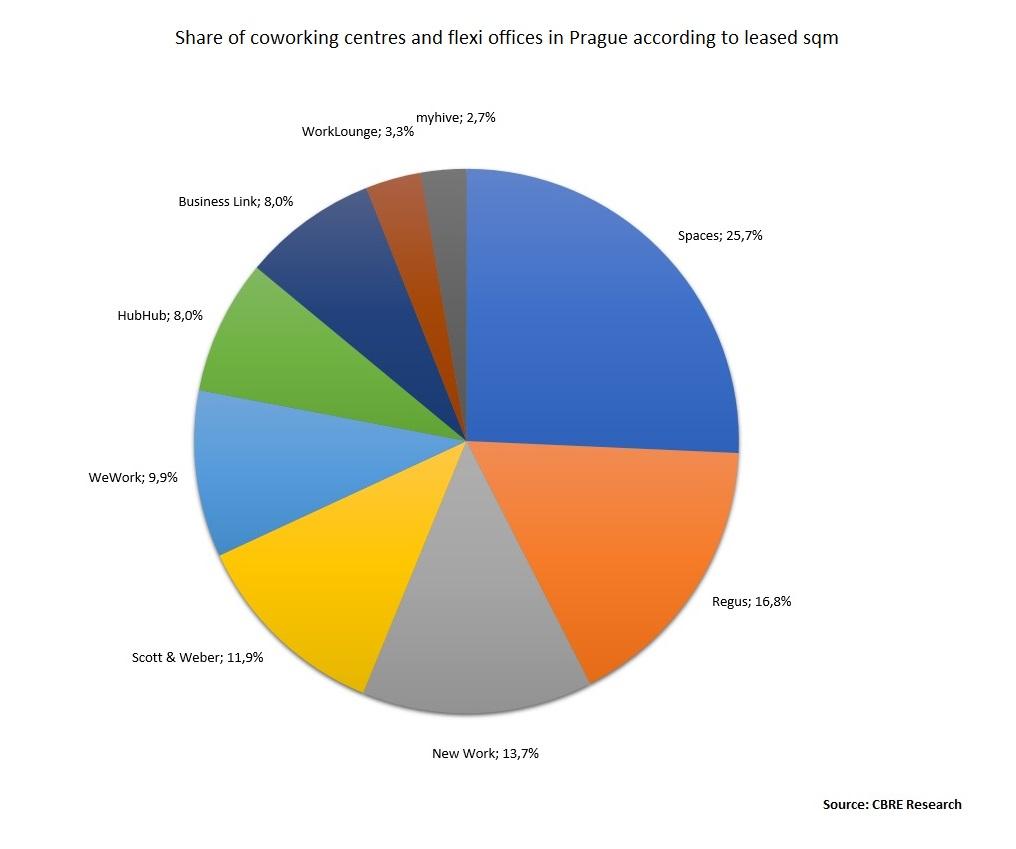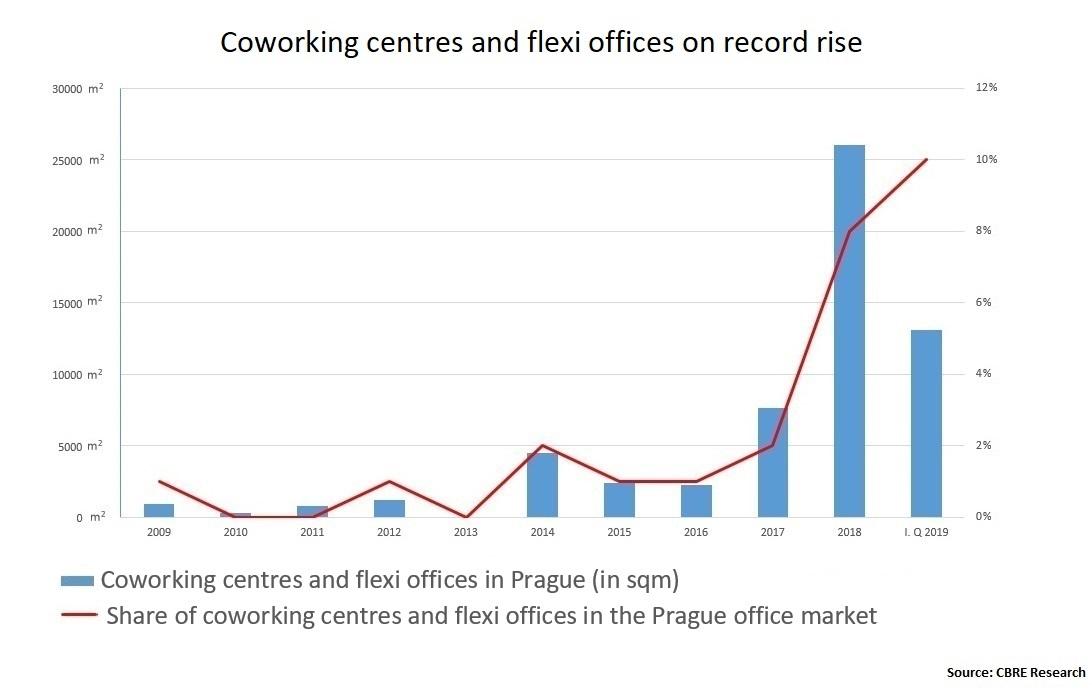Prague is rapidly becoming the coworking hub of Europe
Coworking and flexible serviced offices are the significant trends driving the office property market forward. Millennials, those people born between 1974 and 2004, are currently among the most economically active groups. This generation increasingly prefers the individual approach, high quality services and networking opportunities that coworking centres offer. Such centres are popping up everywhere in the Czech Republic. According to statistics generated by CBRE, a real estate – consultancy company, the number of leased square metres in coworking office buildings in Prague has risen by much as 150% since 2017 (from 25,000 sqm to 65,000 sqm). The share of coworking spaces leased in new lease office spaces grew from 2% in 2017 to 10% by mid-2019.
This share is continuing to rise steeply. On the basis of developments in the 1st half of 2019, when over 13,000 sqm were directly leased for coworking, and further spaces were in the final stages of negotiations, the expectation is that the share of coworking offices, as part of the total volume of newly leased administrative space, will exceed 15% this year. With more than 30 such centres, Prague is rapidly becoming the coworking hub of Europe.
Coworking centres were established in the Czech Republic for the first time in 2009. They thrive especially in larger cities, where more and more independent professionals use them. “Our research reveals four main reasons that motivate companies to choose coworking: coping with an increase in short-term demand (48%), cost reduction (43%), testing of an alternative workplace (39%) and as part of efforts to attract new talent (28%). The last reason is becoming increasingly important with regards to the approach of the millennial generation to work and the long-term low unemployment rate. Over the past twelve months, its importance has grown by ten percentage points,” says Lenka Hrudíková, Coworking and Flexible Office Specialist at CBRE. And what motivates freelancers looking into coworking? They have their own work environment that allows them to concentrate, while not suffering from the feeling of isolation when they work from home. Last but not least, they can establish completely new contacts and therefore further develop their business.
With the growing number of independent working professionals looking for inspiration outside classic offices and the market increasing at record levels, operators of coworking centres and flexible serviced offices are responding accordingly. “The popularity of flexible offices is increasing every year. This trend was confirmed by our annual Global Workspace Survey. The way we are working has changed. The survey reveals that nowadays more than half of people are working remotely for at least 2.5 days a week,” says Karel Pelán, Country Manager International Workplace Group (IWG), which operates the Regus and Spaces network of flexi offices. “85% of respondents stated that work productivity in their companies increased when they allowed employees to work flexibly,” he adds.
It is interesting that the market for coworking centres and serviced offices in Prague is quite balanced, with no distinct market leader. In terms of the size of spaces that operators rent and offer to their members, there are three dominant companies. However, the differences between them can be measured in terms of just a few percentage points. Spaces has a market share of 25%, Regus 17% (both operated by IWG) and New Work 14%. They are closely followed by Scott & Weber, WeWork, HubHub Czech Republic and BusinessLink, which each hold market shares of between 8% and 12%.









